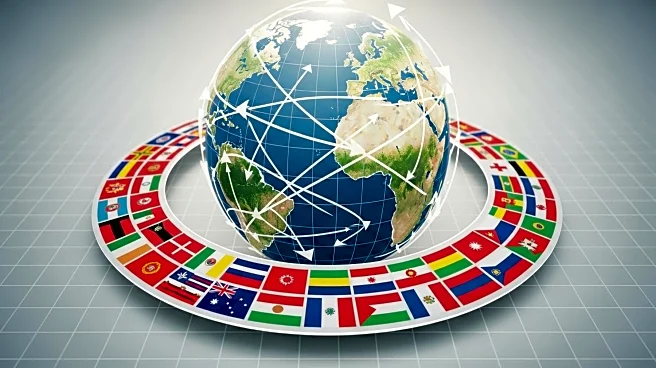What's Happening?
The World Trade Organization (WTO) is a global entity that manages trade rules among nations, aiming to ensure smooth and predictable trade flows. Established in 1995, the WTO succeeded the General Agreement on Tariffs and Trade (GATT) and now includes 164 member countries. It provides a platform for negotiating trade agreements and resolving disputes, with 60 global and about 300 regional trade agreements under its management. The WTO's structure includes the Ministerial Conference, General Council, Dispute Settlement Body, and Trade Policy Review Body, each playing a role in overseeing trade agreements and policies.
Why It's Important?
The WTO plays a crucial role in maintaining international trade stability, which is vital for economic growth and development. By providing a framework for trade negotiations and dispute resolution, the WTO helps prevent trade conflicts that could escalate into larger economic or political issues. Its efforts to lower trade barriers and promote fair competition benefit both developed and developing countries, fostering global economic integration and cooperation.
What's Next?
The WTO continues to monitor global trade and negotiate new agreements to address emerging trade issues. The upcoming Ministerial Conference will focus on key trade topics, including agricultural subsidies and the unresolved Doha Round. These discussions aim to further reduce trade barriers and enhance the capacity of developing countries to participate in global trade.
Beyond the Headlines
The WTO's impact extends beyond trade agreements, influencing global economic policies and promoting sustainable development. Its efforts to support developing countries through technical assistance and training programs are crucial for reducing poverty and enhancing food security. The organization's role in environmental protection and intellectual property rights also highlights its broader contributions to global governance.








